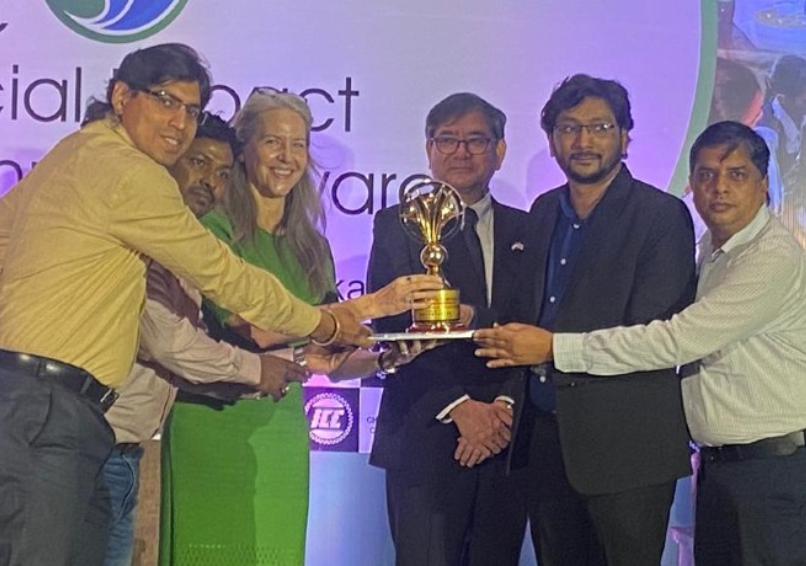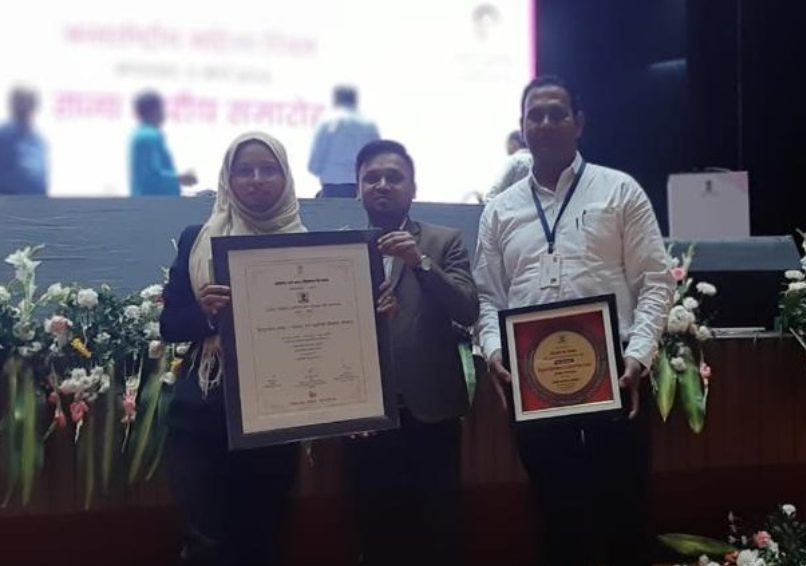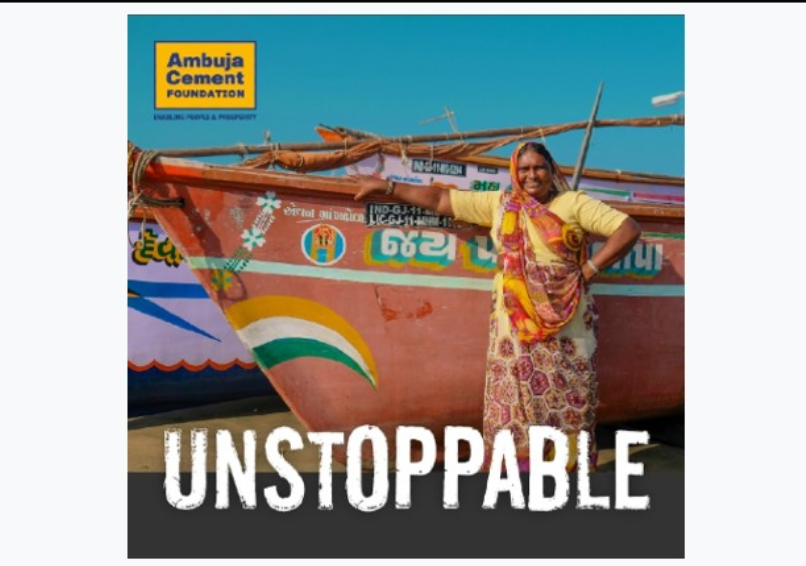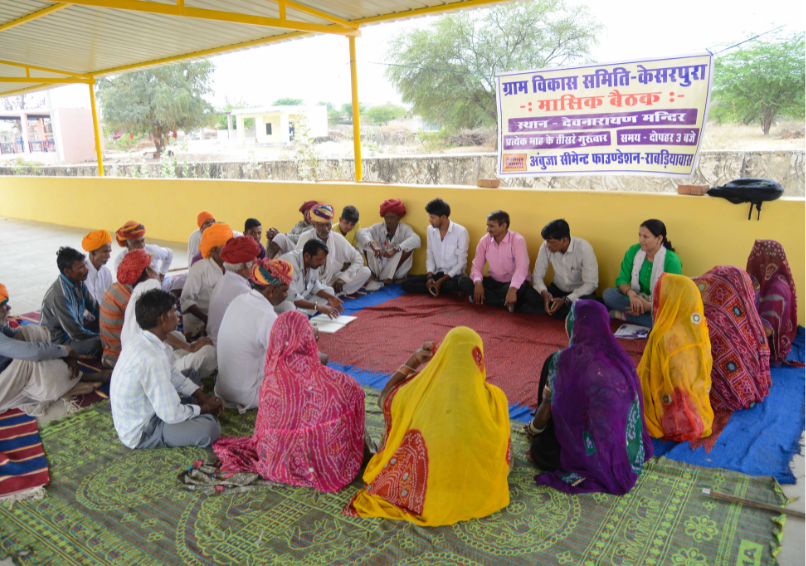Ravi Nayse, Vice President (Skills) at Ambuja Foundation, has spent over 28 years in the development sector and, in his diverse and varied role at Ambuja Foundation, he has noticed a pattern. One which often sees an ‘exit strategy’ for programs, but where finding an ‘exit strategy’ from a community proves difficult …
Read more

Setting the exemplary standards, Ambuja Foundation bagged the ICC Social Impact Award for the fourth time in a row. At the Social Impact Awards 2022 ceremony in Kolkata Ambuja Foundation was celebrated with 3 major awards for its contribution to women empowerment, water resource management and rural heath.
Read more
On the occassion of Women’s Day, Ambuja Foundation was celebrated across locations for its work on community development, health, water and women empowerment.
Read more
On the occasion of Rajasthan Diwas, Ambuja Foundation promoted Farmer Producer Organization in Marwar Mundwa, Green Desert Farmer Producer Company, launched their own brand of spices called ‘Marwari Hatadi’.
Read more
The inspiring stories of Ambuja Foundation’s beneficiaries have been captured in a stunning coffee table book format – highlighting their perseverance and ‘unstoppable’ drive in pursuing their livelihoods and passions.
Read more
Ambuja Foundation recently launched ‘PANKH’ - a women’s forum where women at Ambuja Foundation can voice their opinions, learn and share experiences. This forum is especially designed for women members part of Ambuja Foundation's staff team.
Read more
Ambuja Foundation was awarded the Best Project Implementation Agency by NABARD for its work in the Watershed Development Projects in Darlaghat. Organized by NABARD, Himachal Pradesh, this glittering award ceremony was held on 9th Feb 2022 during the State Credit Seminar 2022-23.
Read more
Many development organization has mark their success on the number of projects and programs they implement. However, we believe that the true success and contribution of our organization is promoting sustainable development that can more effectively be measured by taking a look at our efforts in strengthening local organisations. After all, improving ‘community ownership’ is both a means and an end in the process of development.
Read more
When you talk with Manoj Agarwal about the secret to success in rural development, he very passionately begins to espouse the ‘saturation approach.’ As one of Ambuja Foundation’s leadership team for Rajasthan & West Bengal Regions, Manoj believes that “if we are to truly see village transformation, every program must reach every household in a village – period.”
Read more
The spare room in Mehra Sheikh’s house has been transformed. It’s become a sanitary pad production centre and it bustles from day to night as women come and go, meeting strict production targets for the new menstrual hygiene product.
Read more
Ambuja Foundation has partnered with Asian Paints to enhance the livelihood of 4.2 lakh individuals in nine villages in Visakhapatnam through water and health initiatives. As part of Asian Paints CSR initiative, Ambuja Foundation acts as an implementing partner for this project to revive water bodies, install water filtration systems and create awareness among the community on judicious utilisation of water resources and health and hygiene for the next two years.
Read more
It’s 2022 and the world has changed. And with it, so have we. We have all pivoted towards a new way of doing things – we’ve gone digital like never before; we’ve diversified and taken on new responsibilities; we’ve been forced to become more and more enterprising as seemingly insurmountable hurdles continue to be thrown in our way.
Read more

